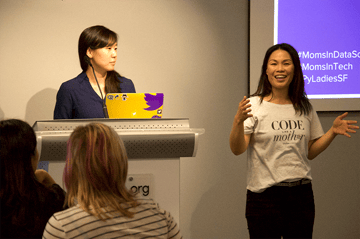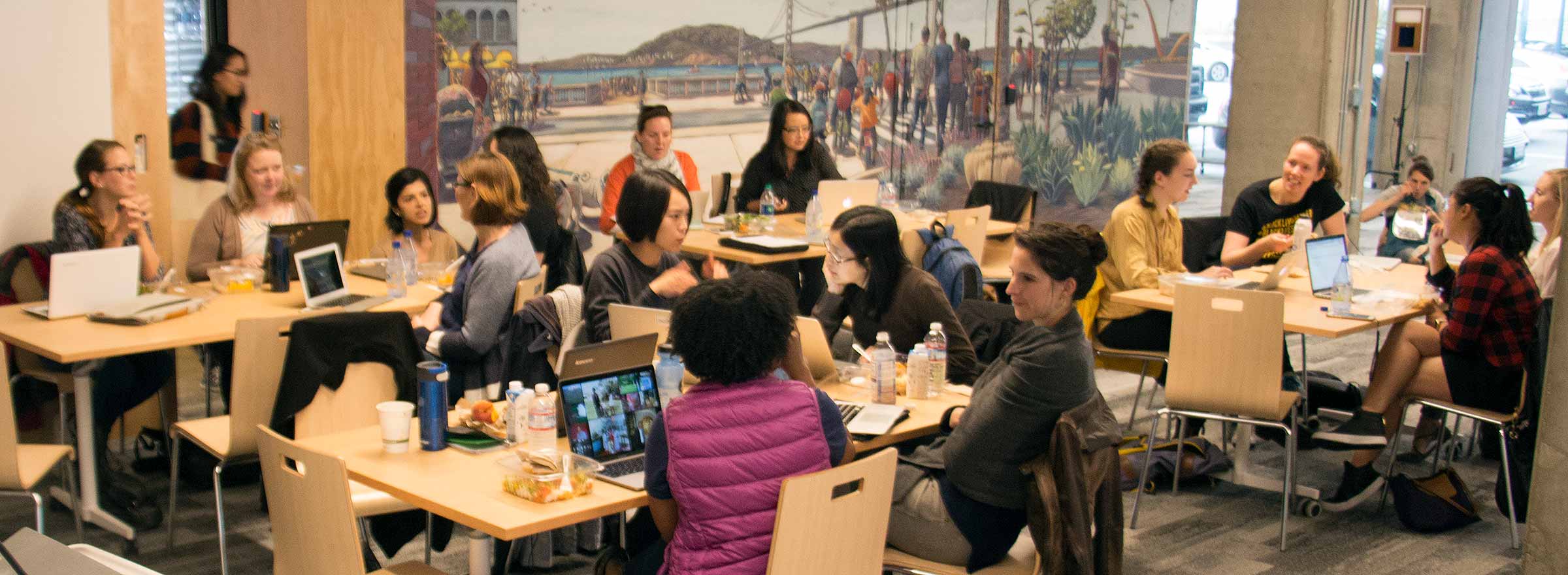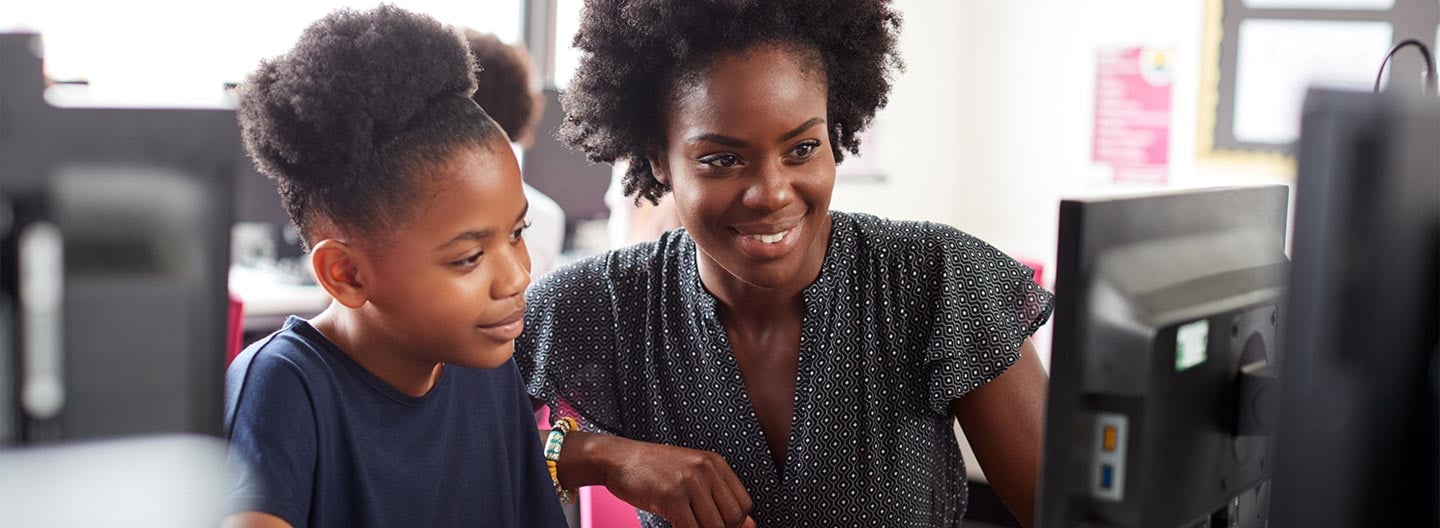In the tech industry, one continuous topic of discussion is the lack of gender diversity. There aren't that many women in tech. In fact, women hold only 25 percent of computing jobs, a number that has declined since 1991. To try to reverse this trend, many nonprofits are teaching women tech skills. MotherCoders is one nonprofit that's working with moms to make this happen.
Being a mom is already hard, but being a working mom in the Bay Area comes with huge financial challenges. Forty-three percent of women leave their jobs for their caregiving responsibilities, and yet, 40 percent of households have moms as the primary or sole earners.
 Creating economic opportunity for moms is at the core of MotherCoders' mission. Tina Lee founded MotherCoders in 2013. She's on a mission to help other moms break into the tech industry.
Creating economic opportunity for moms is at the core of MotherCoders' mission. Tina Lee founded MotherCoders in 2013. She's on a mission to help other moms break into the tech industry.
At a MotherCoders event at Google, TechSoup had the opportunity to sit down with Tina Lee.
TS: Why did you start MotherCoders?
TL: I started MotherCoders because there were a lot of moms who were like me who needed to gain tech skills to remain competitive in the workforce. We couldn't find a way to gain those skills because the free classes or low-cost meetups usually happened in the evenings when we were taking care of our kids or on the weekends. That's why we created a program based on the needs of moms. One of the things we did was provide on-site child care, and we started running classes on Saturdays and meetups on evenings after work to enable more moms to come to us.
TS: What is MotherCoders' mission?
TL: MotherCoders is trying to diversify tech with more moms. We do that because 81 percent of women become moms, so even if they're not moms now, there's a high chance that women will become moms. Once they become mothers, their capacity to gain these skills becomes very, very limited because of their caregiving responsibilities.
Economic opportunity is really important to moms because they have to take care of their families, especially in areas like the San Francisco Bay Area where it's very expensive. Once you factor in child care, combined with the current opportunities that are open to moms, a lot of mothers and families aren't able to afford staying here.
Opportunities that are available to moms are usually lower-paying. Tech skills, however, enable moms to level the playing field when they're out there competing for jobs.
TS: What type of events does MotherCoders host?
TL: We try to create a very welcoming and safe space for moms. It's very difficult to talk about the challenges of being a parent, let alone a woman, in the workplace … work culture is still very centered around this ideal worker–model, where work comes first. And as soon as you become a mother you get hit by something called the "motherhood penalty." You're automatically deemed less committed to your career and less competent for some reason.
That penalty shows up in your compensation packages and the opportunities that are open to you. So what we do is we create a safe space for moms to come together and meet each other. They can pick up these really important tech skills that they need to gain just an edge in the market, so that they can get the job that they need to take care of their families.
TS: What kind of tech skills do you teach moms?
TL: We take a very holistic approach to learning about tech. We teach technical skills like front-end web development. But that's really to just get moms started on coding and get moms started on building something, so they know how it feels. We supplement that technical training with contextual knowledge; we talk about all the topical issues that are important so that moms have a way of applying their own passions and experience.
We use that to then figure out a place that might be good for them. We bring in women from the field to talk about their careers in tech, whether it's full-stack marketing, whether it's data science or software engineering or design. These women come in and create an environment where moms are able to ask questions freely.
I try to bring as many moms as possible so that women can see our speakers as an ally. They can see someone they can aspire to emulate and someone who can help lead them into a career in tech that they want to pursue. All that comes together in a community that is self-actualizing.
TS: What are some successes you can share?
TL: There are a lot of success stories from moms, including moms all together moving into a new job that they never thought they would have. We've had moms starting their own businesses and other moms that are starting careers in something that they never thought they would do.
TS: What advice do you have for other moms trying to learn tech?
TL: Just jump in. Just like everything, you have to find out what you don't like before you can discover what it is that you do like. So try tinkering with some stuff online, try going to a meetup here or there just to see how it's like.
The road might be longer as a mom. But having people around you who are supporting you and are able motivate you, keep you sane, and keep things fun will definitely help. It'll help you in your journey to wherever it is that you're trying to get to.
TS: How has TechSoup helped your nonprofit?
TL: TechSoup has enabled us to get equipment at discounted rates, and to get very, very mission-critical applications, including security software from Symantec. TechSoup has been a resource for learning. TechSoup is also a community.
So it's been really great being able to plug into a community of practice, of other nonprofits that are also trying to leverage technology to make social change. It's been central to us in terms of helping us get to where we need to go. TechSoup is also helping us think through how we scale and what technology tools we need to get there.
Responses edited for clarity.








